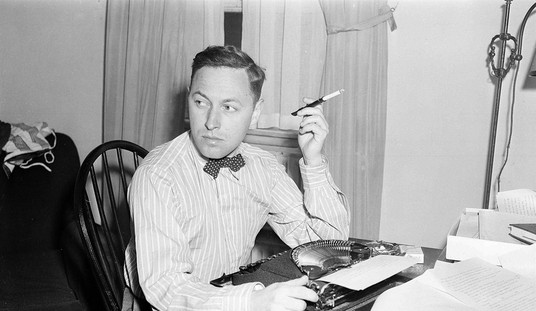One of the (many) reasons why Hollywood has largely slept through this decade is the fecklessness of its writing. Technically, the craft of Hollywood has never been more sophisticated: watch The Dark Knight or the Matrix movies or any one of a dozen summer popcorn flicks for all-enveloping production design, cinematography and sound. But for reasons of political correctness, commercialism, or seemingly just out of spite, the committees that produce most films today can take a story that begins as a solid piece of fiction and make utter hash of it.
There’s a new post at Big Hollywood by John Ridley (“When I write for the Huffington Post I’m often considered the resident Righty. When I write for NPR I’m the flaming Liberal.”), who wrote the story that became George Clooney’s 1998 film Three Kings. (The movie where Clooney blamed President George H.W. Bush for not finishing the job in Iraq. Clooney and the rest of Hollywood would of course spend the next decade blaming President George W. Bush for finishing the job in Iraq.)
But Ridley originally wrote his story with a black solider as the lead protagonist:
When I wrote the story for Three Kings, it wasn’t meant to be particularly conservative or liberal. It was a black empowerment piece. The lead character of the story was a disillusioned black man who figures if the government is going to go to war over oil, then he is entitled to grab something for himself if he can. Gold. But when he sees that America is going to once again basically turn a blind eye to the plight of the oppressed, that’s when he decides he has to step in and help his “dark skinned” brothers and sisters. The ascendancy of a man of color who sees wrong, and does right despite his circumstances.
What ended up on the screen from all that was Ice Cube in the sidekick role.
And right around the same time, Hollywood was doing the reverse to Andrew Klavan’s True Crime novel, when it became a vehicle for Clint Eastwood:
The PC concerns, internalized in scriptwriters’ heads even before any advocate complains, can produce bizarre incoherence. Novelist and screenwriter Andrew Klavan’s True Crime is about an innocent white man on death row, railroaded because officials needed to prove that the death penalty isn’t racially biased. “The only one who figures this out is this politically incorrect journalist who can see through the B.S.,” Klavan relates. The gripping 1999 movie version, directed by and starring Clint Eastwood as journalist Steve Everett, transforms the innocent death-row inmate into a black man (played by Isaiah Washington). The movie works, even if it takes the anti-PC edge off Klavan’s novel.
Of course, to really witness political correctness, poor casting, and screenwriting by committee ruin a killer novel, compare the ridiculous movie version of The Bonfire of the Vanities to Tom Wolfe’s epochal book. Or spare yourself two hours of hell and just read Julie Salamon’s The Devil’s Candy instead–it’s a much more entertaining look at how Hollywood’s million dollar chefs can ruin even the most foolproof of recipes.










Join the conversation as a VIP Member